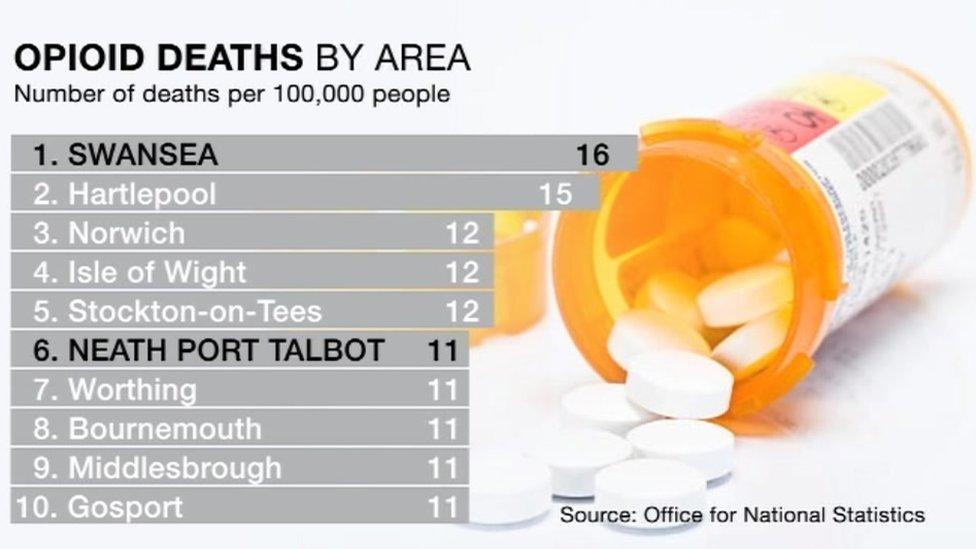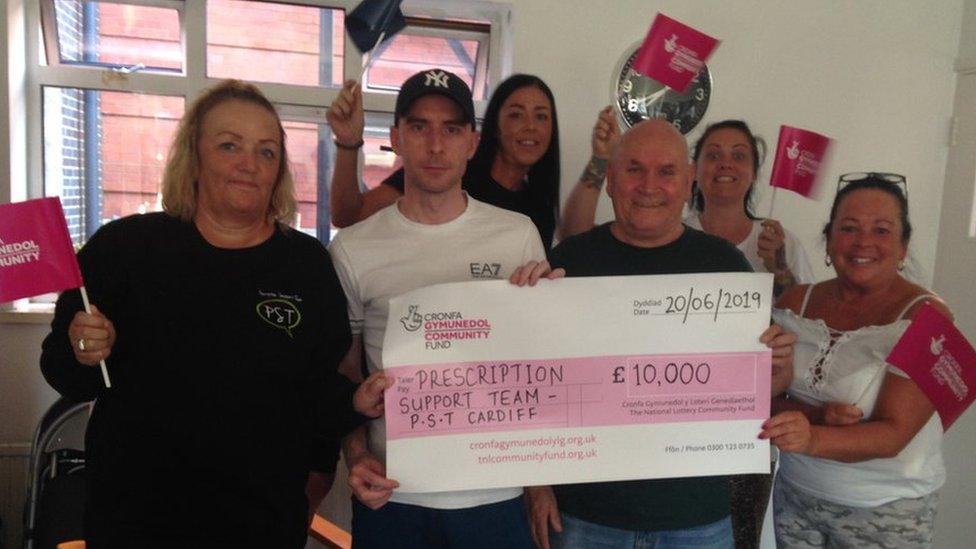Opioid abuse: Should patients sign for strong drugs?
- Published

Helena Bond became dependent strong painkillers after an operation on her back
Patients prescribed strong painkillers by their GP should sign a form to prove they understand the risks, a charity has urged.
Helena Bond co-founded Prescription Support Team (PST) to help people who are dependent on prescription drugs.
A report in early 2018, external showed a 300% increase in prescriptions for strong painkillers over a decade in Wales.
The UK government has already announced plans for labels to carry warnings about the risk of dependency.
However there are concerns this does not go far enough.

Opioid painkillers include tramadol, codeine and morphine
Ms Bond, of PST in Cardiff, became dependent on strong painkillers after an operation on her back.
She suffered from withdrawal symptoms after just three days of stopping taking her tablets.
"I never used to read about the side-effects, I just opened the box and took the pills," she said.
"I felt physically that I could not move and I spent the next three days in bed.
"I was wearing a woolly dressing gown, a hat and a quilt but I was still feeling the cold so much that I couldn't even drink water. It hurt."
Now she is campaigning for stronger measures to raise awareness of the potential dangers of strong prescription drugs such as fentanyl, co-codamol and tramadol.
"People should be called into the doctor's office and sign their name to say 'yes, I've been informed about all the withdrawal symptoms that could happen and all the side-effects," she said.
"This would push people into reading about the side-effects."

In 2017, the most recent year for which data is available, the rate of opioid-related deaths in Wales was more than double that of London.
Swansea had the highest rate in the UK - 16 per 100,000 - according to the Office for National Statistics.
The problem was also acute in neighbouring Neath Port Talbot, where 11 people per 100,000 died from drug poisoning from prescription drugs.
Dr Peter Saul, of the Royal College of GPs in Wales, said: "All the information is there, but at the moment people do not need to sign to say that they have read it and tend not to read them.
"It would be interesting to see if some people would actually then prefer not to have the drugs if they had to sign a form.
"And for those who do take them, you could perhaps look three months later as to whether they were still on the medication."

PST helps people who use, are dependent on, or want to begin to taper prescription medication use
However there are concerns this could set a precedent for consent forms for all types medication.
"Where do we draw the line?" asked Dr Saul.
"Do we say, here are antibiotics, but you have to sign to say you understand they could cause diarrhoea?"
The Welsh Government invests almost £53m every year on services related to drug and alcohol dependency.
It released updated advice on living with persistent pain, external which acknowledged that medications were sometimes continued, despite little evidence of benefit in reducing pain.
There are no plans to introduce a system that requires patients' signatures.
A spokesperson added: "We expect prescribers to discuss the risks and benefits of treatment options with patients, including side-effects and when and how to safely stop taking medicines."
The UK government has been asked to comment.
- Published16 May 2019
- Published28 April 2019

- Published24 February 2019
